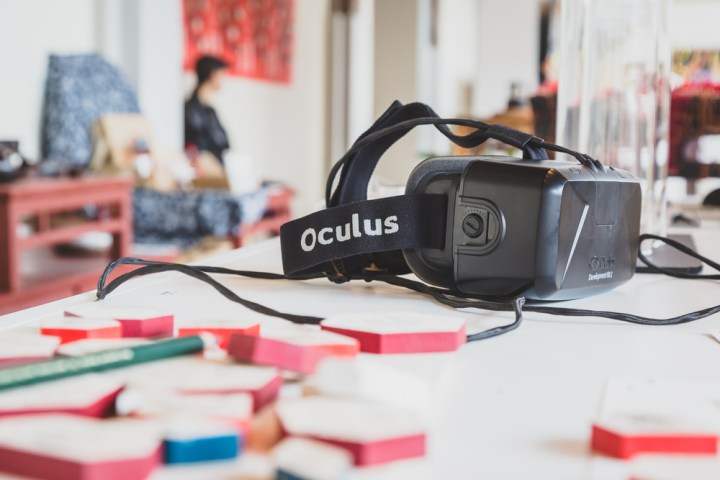
Still in the early stages of development, the technology initially supports the Oculus virtual reality units, though the company hopes to offer support for the Gear VR and other VR headsets in the future. The early demo of the technology, hosted by Flickr engineer and project lead Bertrand Fan, used an Oculus DK 2 connected to a PC that allowed a user to pan their head as they viewed 360-degree panorama photos. The immersive VR experience allowed the user to turn all the way around to view the entire panoramic photo.
Though Fan has only worked on the project for a matter of weeks, he claims to have big plans for the future of the tech. The feature already includes eye control as a means of advancing through a slideshow of 360-degree VR photos, however, Fan doesn’t want to stop there. He also envisions an advanced gesture-based user interface which would allow you to browse your library and organize your photos using only hand gestures and other virtual reality interactions.
Flickr wants to provide the best experience for its 360-degree photos, which continues to grow in popularity and already features several dedicated communities. For starters, all 360-degree photos which support this virtual reality view will be tagged with a headset link or button that then opens the VR connection. To make it easy to discover this VR-enabled content, Flickr also plans to add a dedicated 360-degree panorama category in the explore section of the photo hosting service.
Fan hopes to completely introduce Flickr’s new VR feature to the general public early next year, however, users should be on the lookout for some virtual reality links to show up on individual photo pages. If you have a spare VR unit kicking around, you can even give the feature a spin when it starts to gradually make its debut.




